Joe Mercer, jockey who won a string of top-class races and enjoyed a glorious partnership with Brigadier Gerard – obituary
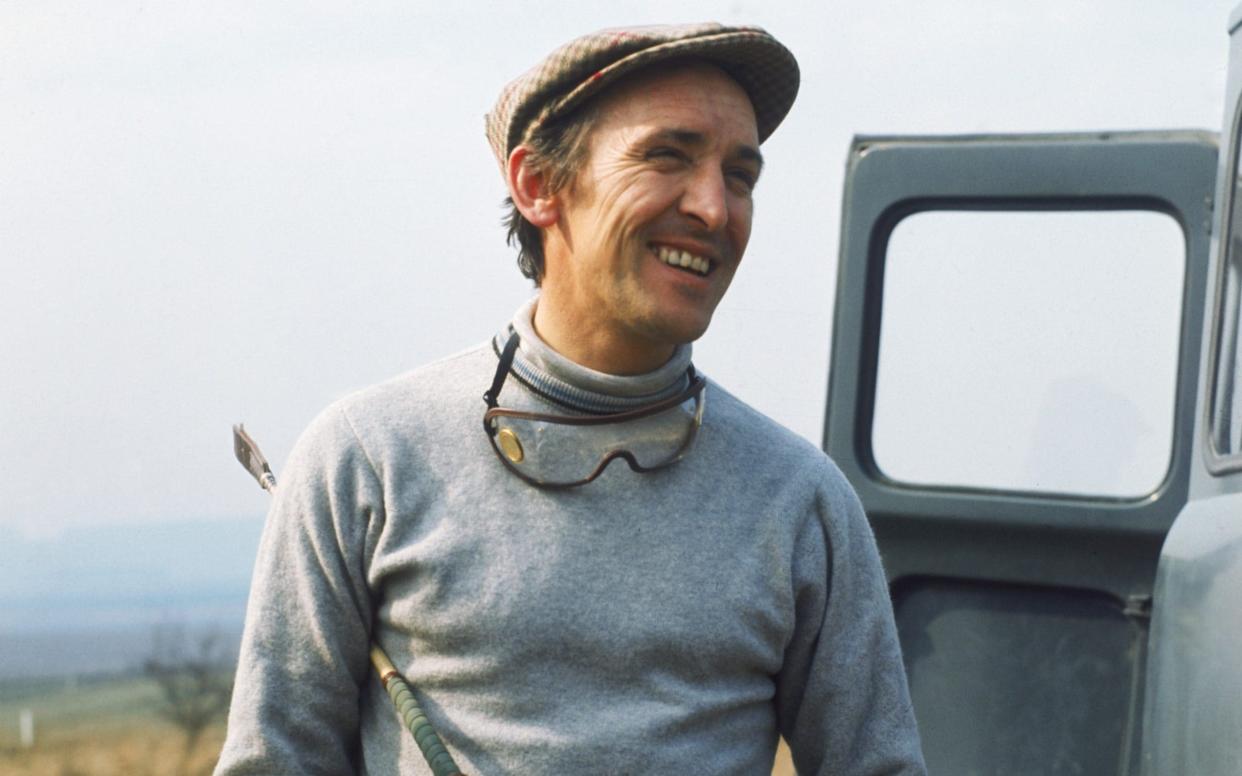
- Oops!Something went wrong.Please try again later.
- Oops!Something went wrong.Please try again later.
- Oops!Something went wrong.Please try again later.
Joe Mercer, who has died aged 86, was often described as the finest flat jockey of his era never to win the Epsom Derby, but he will be best remembered for his association with one of the greatest horses to grace the Turf, Brigadier Gerard.
Mercer first sat on Brigadier Gerard early in 1970, shortly after returning home from India, where he had been riding during the winter months. He was not in the best of spirits, having just served a short jail sentence in Poona on being found guilty on a charge of “diamond smuggling”.
Brigadier Gerard, trained by Major Dick Hern (for whom Mercer was the stable jockey) at West Ilsley in Berkshire, was about to embark on its racing career; and no one could have predicted that it would win 17 of its 18 races over the next three seasons.
“The Brigadier”, with Mercer as his devoted pilot, won Group One races from six furlongs to one and a half miles; until the appearance of Frankel in the first decade of the new millennium, many considered him the greatest miler of all time.
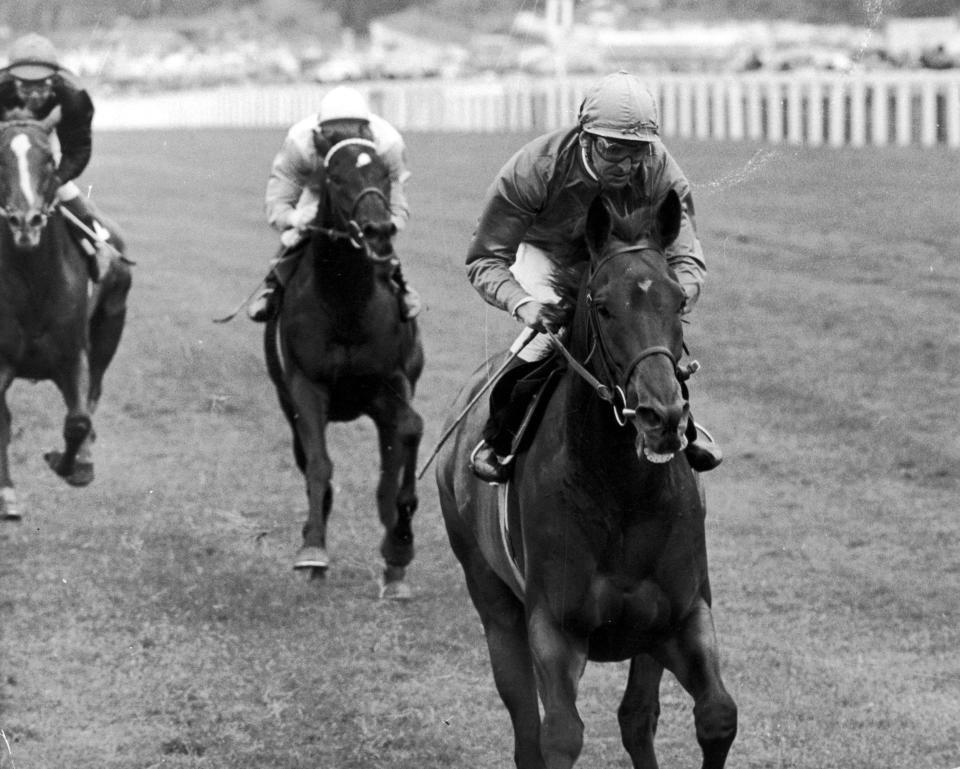
In his first race, the Berkshire Stakes at Newbury in June 1970, Brigadier Gerard was joint 100-7 outsider in a field of five, but came from last to first to win by an easy five lengths. He then won his three other races as a two-year-old, including the Middle Park Stakes at Newmarket.
In the 2,000 Guineas the following season, Brigadier Gerard was one of only six runners, but among them were My Swallow and Mill Reef, who disputed favouritism. The Brigadier started at 11-2, and, in Mercer’s words, “we just went sailing by them and that was that. He was a machine.” His horse had beaten Mill Reef (which went on to win the Derby) by three lengths, with My Swallow third.
Brigadier Gerard did not run in the Derby, his owner John Hislop deciding that Epsom’s steep gradients would not suit him, and believing that he was likely to be at his best as a four-year-old. But, under a beautiful ride by Mercer, he won the St James’s Palace Stakes at Royal Ascot by a head from Lester Piggott’s Sparkler.
Mercer’s horse went on to win the Sussex Stakes, the Goodwood Mile and the Queen Elizabeth II Stakes by an aggregate of 23 lengths, and finished off the season by taking the Champion Stakes, in which he tackled a mile and a quarter for the first time, and did so in very testing ground. Brigadier Gerard finished his three-year-old career having won all 10 of his races.
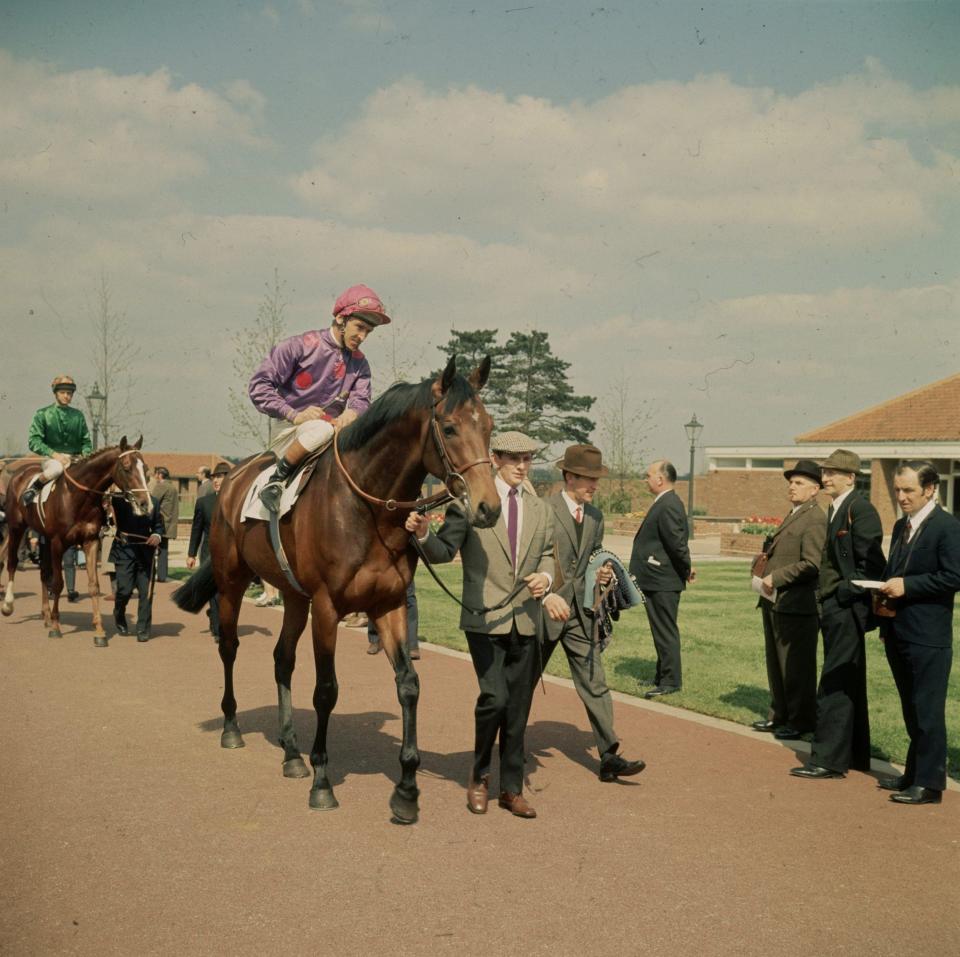
He added two more to his tally at the start of the 1972 season, and was then aimed at Ascot’s Prince of Wales Stakes. Two days before the race, however, Mercer was travelling in an aircraft which crashed on take-off from Newbury racecourse, killing the pilot. Although the jockey was unhurt, there were doubts that he would be up to taking the ride at Ascot. He insisted on carrying on, and his horse hacked up, winning by five lengths and breaking the course record for one and a quarter miles.
After winning the Eclipse, the Brigadier tackled the King George VI and Queen Elizabeth Stakes, his first race over a mile and a half. He won that too, although his connections had to survive an unnerving stewards’ inquiry after Mercer’s horse had cut across Parnell, which finished second.
Brigadier Gerard’s only defeat came in his next outing, the Benson and Hedges Gold Cup at York, when he was beaten three lengths by the Derby winner Roberto. Mercer’s disappointment was keen, and he later ventured that his horse had been suffering from a slight chill “which could have taken the edge off him”. But Brigadier Gerard concluded his stellar career by winning a second Queen Elizabeth II Stakes and Champion Stakes before being retired to stud.
There is no doubt that the partnership with the Brigadier was the highlight of Mercer’s career. Noted for his stylishness and sparing use of the whip, Mercer won his fair share of big races (including classics), but the fact that the Derby eluded him – and that he was only once crowned champion jockey (at the age of 45) – meant that, in the minds of racegoers, he never quite attained the pinnacle reached by some of his rivals. In the early years of his long career he competed against the likes of Gordon Richards and Charlie Smirke; later he was racing alongside Lester Piggott, Willie Carson and Pat Eddery.
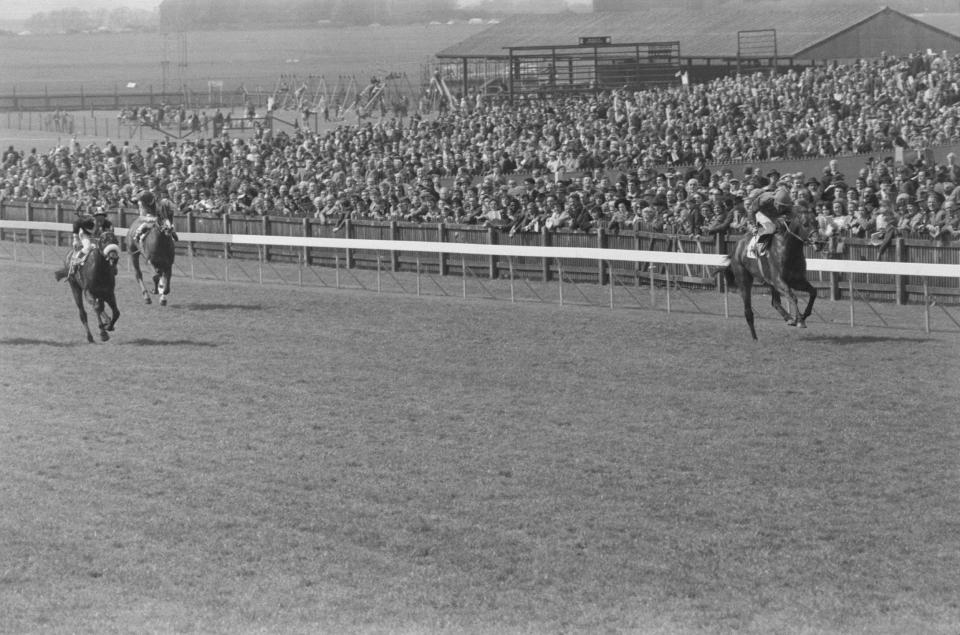
Joseph Mercer was born on October 25 1934 in Bradford, one of eight children (two of whom died young) of Emmanuel Mercer, a coach painter who in his youth had wanted to be a jockey and therefore encouraged his sons. Indeed, Joe’s older brother, Manny, would become one of the country’s leading riders, winning both the 1,000 and 2,000 Guineas before being killed in a fall at Ascot in 1959.
The boys’ first experience was on a toy horse on wheels, which their parents bought at a local auction for £4 10s; they then graduated to riding donkeys on the beach during seaside holidays.
When Joe was nine, the family moved from Bradford to Cheadle in Cheshire, where Joe took the opportunity to sit on the horse which pulled the local milk round. He also mucked out at a local riding school.
Aged 12 he was taken on by Major Frederick Sneyd at his stable near Wantage. His contract included the words: “He [the apprentice] shall not haunt Taverns nor Playhouses nor absent himself from his said Master’s Service day or night unlawfully …” His pay was set at three shillings a week, rising to 10 shillings after three years. At first, in addition to his work with the horses, he was required to weed the major’s garden and wait at table. Joe recalled: “Later, as he got to know me better, I sat down to dinner with him and learnt all the social graces.”
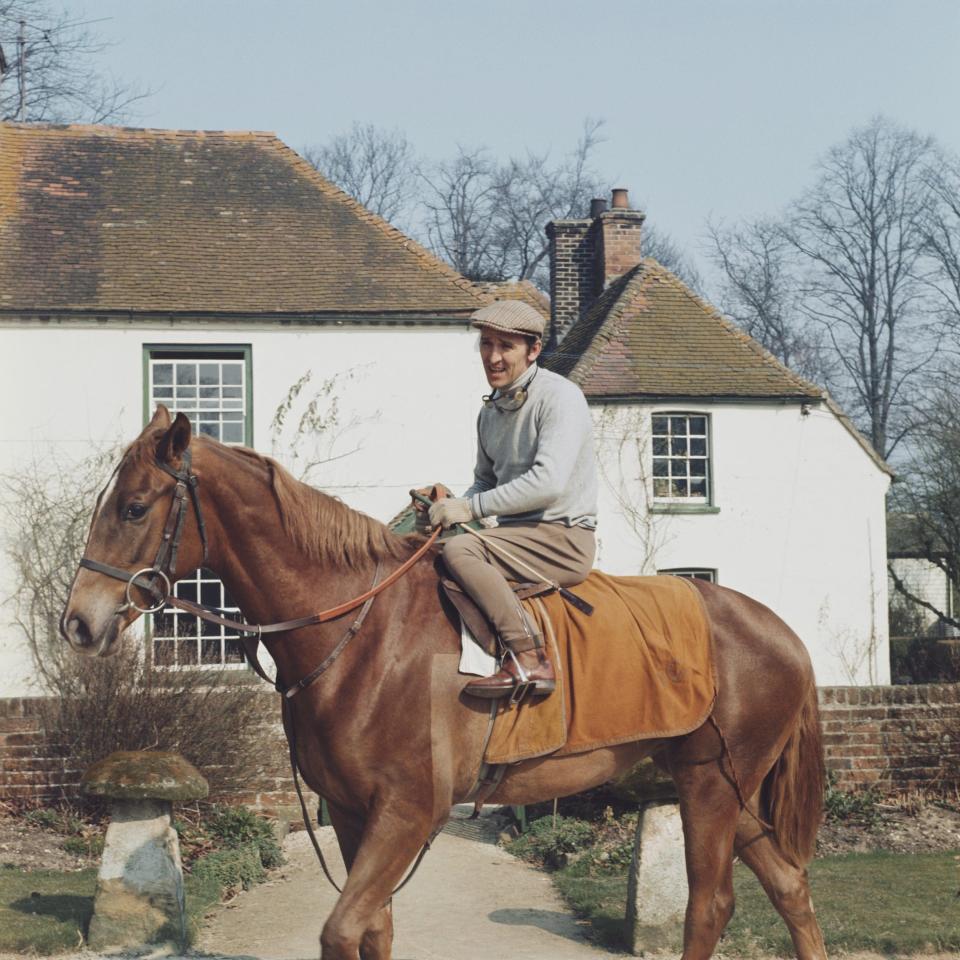
Mercer rode his first winner in September 1950, and then steered a horse called Capsize to 11 victories. He soon attracted the attention of Jack Colling, who trained at West Ilsley in Berkshire and whose principal patron was the Astor family. Gordon Richards was Colling’s first jockey, but Mercer began riding work for him and deputising when Richards was unavailable.
By the end of the 1952 season Mercer had ridden 26 winners and was champion apprentice. The following year he became Colling’s first jockey, and won the Oaks for his stable on Ambiguity. That season he rode 61 winners and again finished as champion apprentice; the next year he and Lester Piggott shared the title.
Mercer remained with Colling until the trainer retired in 1962, when the West Ilsley yard was taken over by Dick Hern. As Hern’s stable jockey, in 1965 he won the St Leger (his second British classic) on Jakie Astor’s Provoke, and in the same year took the Irish St Leger on Craighouse.
In 1967 Mercer was clear at the top of the jockeys’ championship when, in August, a horse he was riding at Folkestone broke a leg; as it fell, Mercer fractured his spine, ending his season and allowing Lester Piggott to overtake him for the title.
In 1960-61 Mercer had been contracted to ride in India during the winter for the Maharaja of Parlakimedi. Only two days after his arrival, however, war broke out between India and Pakistan, and there were rumours that troops were marching on Calcutta. Mercer was advised to leave at once, and was subsequently sued by the Maharaja for £300 for breach of contract. But he enjoyed the subcontinent and returned to ride in India every winter from 1966 to 1970.
On the last of these visits he had bought two diamonds which were in his pocket when he arrived at Bombay’s airport for the flight home. “They asked if I had anything to declare, and like a bloody idiot I said ‘No’, not thinking that … it was illegal to take anything of value out of India with you.” He was arrested and his passport confiscated. Tried for smuggling, Mercer was found guilty and sentenced to three months’ imprisonment in Poona.
He later recalled: “In my cell I had company every night – a little family of mongooses. I had left a plate of food on the floor one night and I heard rattling and something devouring my leftovers. So I left them some every night, and they came at dusk and brought their family with them.” In the event, he served only 20 days before being allowed to return home.
In 1976, riding Relkino, Mercer finished second to Empery in the Derby. Shortly before the race Mercer had been told what he already knew was coming: that his contract with Hern’s stable would not be renewed. He was replaced by Willie Carson on the instructions of Sir Michael Sobell and his son-in-law, Sir Arnold Weinstock, who had bought West Ilsley in 1970. “It wasn’t,” Mercer said, “the sort of news you wanted to hear an hour or so before going to ride for the stable in the Derby.”
Among those who were shocked by what they saw as an act of disloyalty was The Daily Telegraph’s John Oaksey, who wrote: “[Mercer] is not only the most stylish flat race jockey I have ever seen, but also one of the most consistent, effective and, above all, reliable.”
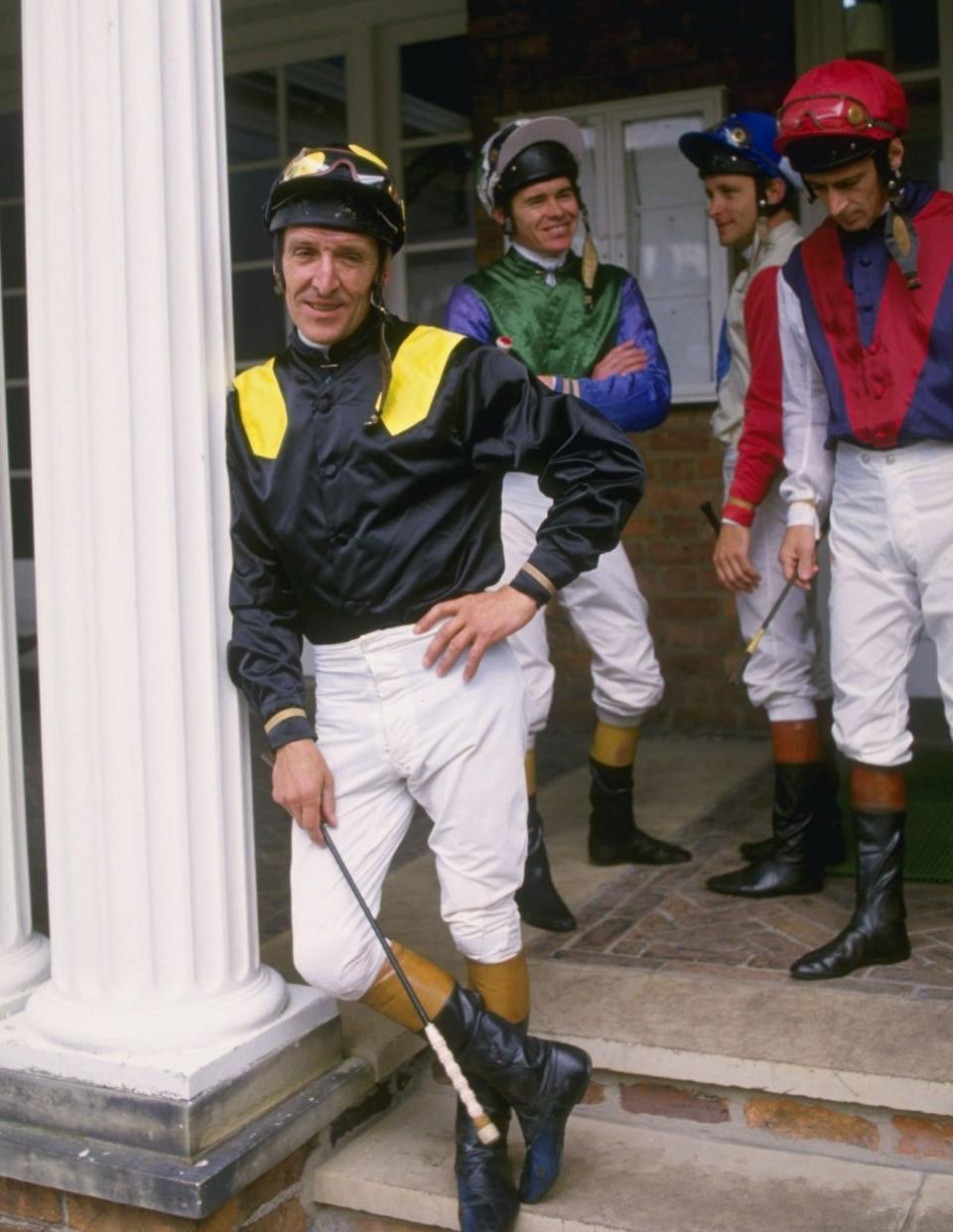
At the time, however, Mercer was 41, Carson nine years younger. Mercer later revealed that Sir Arnold’s son, Simon Weinstock (then an undergraduate), had criticised his riding in a particular race: “I more or less said to Dick [Hern] that if the boy wanted to tell me how to ride them, then he’d better ride them himself. I think that was the start of it all.”
Mercer now embarked on a fruitful four-year association with Henry Cecil, during which he rode the great miler Kris and the stayer Le Moss, and won three English classics. In 1979 he rode 164 winners, becoming champion jockey for the first and only time. He was appointed OBE in 1980.
In 1981 Lester Piggott took over as Cecil’s stable jockey, Mercer moving to Peter Walwyn’s yard at Lambourn. He retired at the end of the 1985 flat season.
In Britain he rode a total of 2,810 winners between 1950 and 1985, a tally which placed him fourth behind Sir Gordon Richards, Lester Piggott and Doug Smith. He won eight British classics and a host of other top-class races. His record in the top-class staying events was particularly impressive, including eight Doncaster Cups, five Jockey Club Cups (three of them on High Line) and two Goodwood Cups (both on Le Moss).
In Ireland, he won the 2,000 Guineas, the Derby and the St Leger. His successes in France included the Prix de Diane (the French Oaks) on Highclere in 1974, the Prix Vermeille and the Prix du Moulin.
After retiring, Mercer, a pipe-smoker nicknamed Smokin’ Joe, acted as agent to other jockeys and had more time to indulge his passion for shooting. He recalled accompanying Lester Piggott to his first shoot: “Lester and I were standing at the back waiting for the birds to fly over when a pheasant came running across the gateway. Lester took aim and blew it to smithereens. I ran across to pick up a mass of broken feathers and informed him, ‘You’re not supposed to shoot it on the ground, Lester, you’re supposed to shoot them when they’re flying.’ ”
He married, in 1959, Anne Carr, daughter of the Queen’s jockey Harry Carr; they had two sons and a daughter. In the same year, riding Fidalgo, Mercer was beaten one-and-a-half lengths into second place in the Derby by his father-in-law, on Parthia. It was the closest he came to winning the world’s most famous classic.
Joe Mercer, born October 25 1934, death announced May 17 2021

